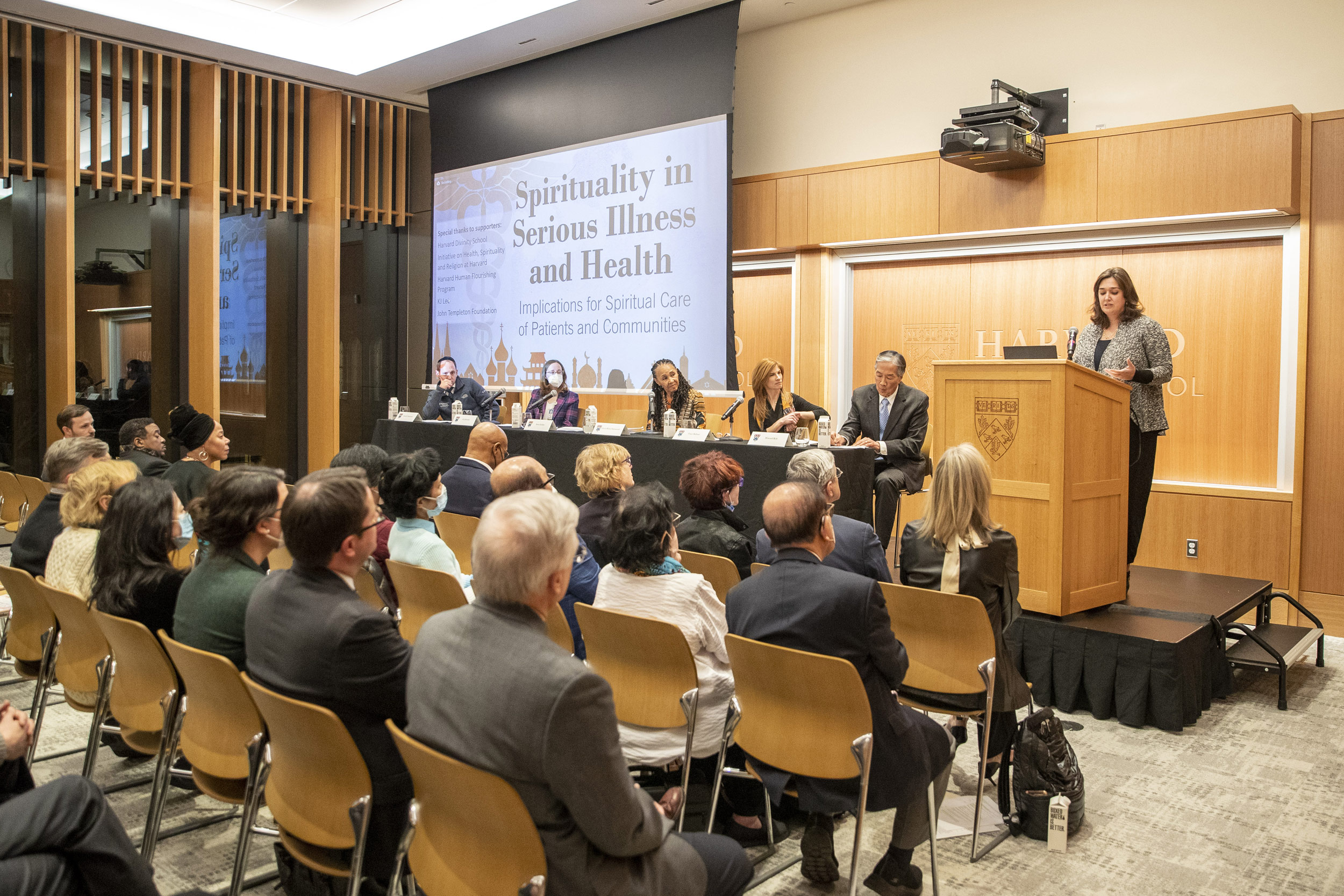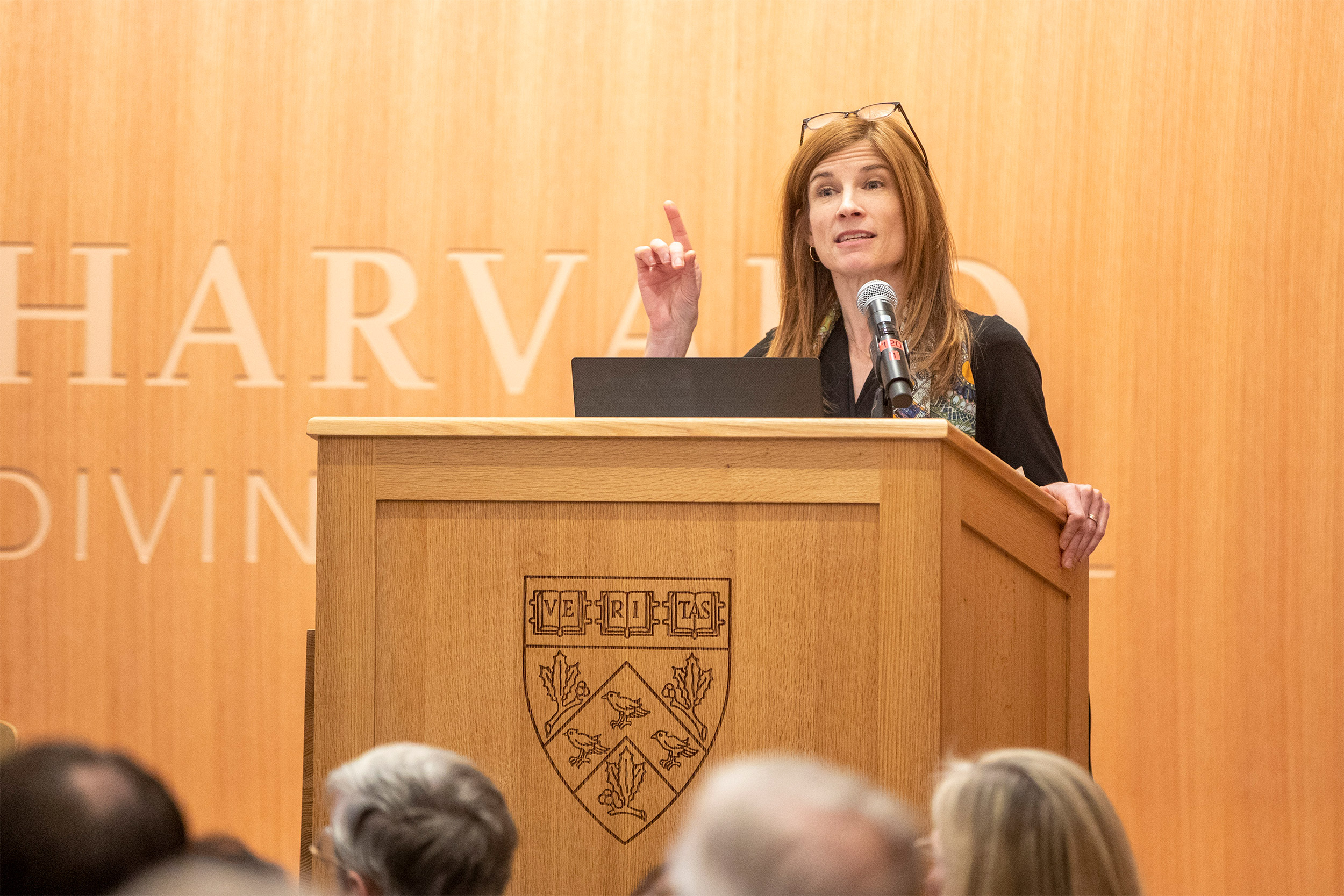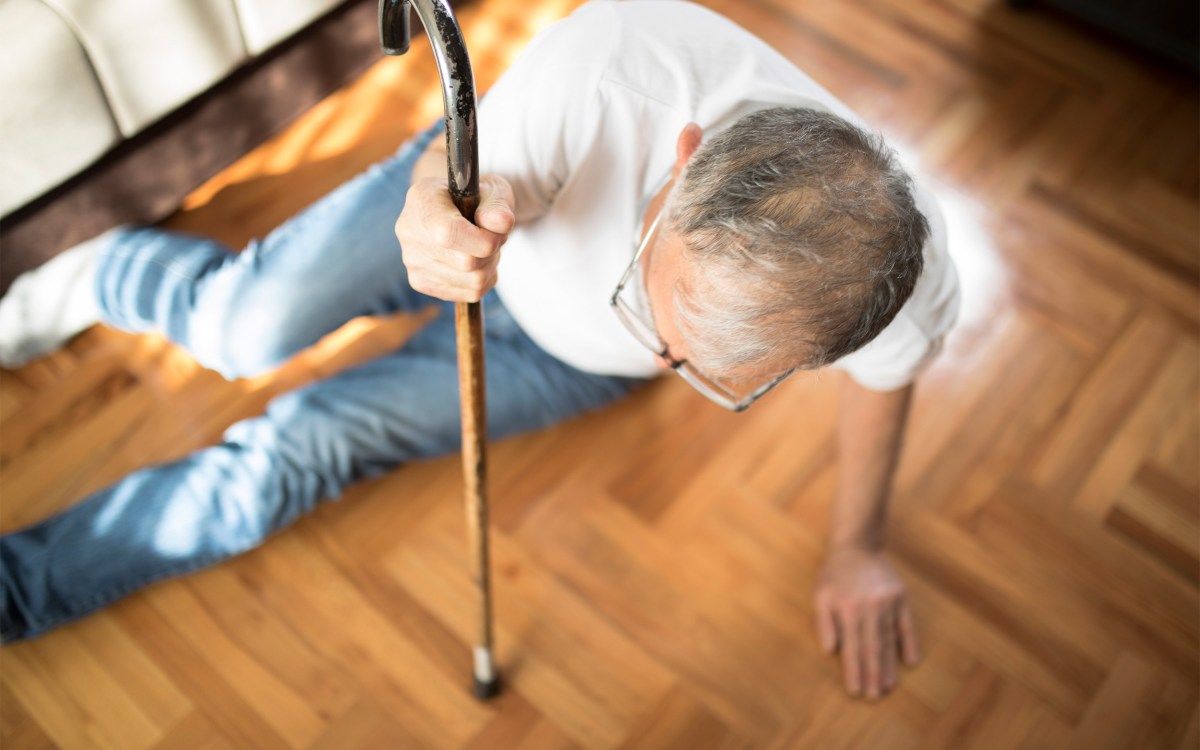
Making patients feel psychologically safe about discussing their spirituality is key, said panelist Anna Gosline (podium), executive director of the Massachusetts Coalition for Serious Illness Care.
Photos by Scott Eisen
‘Why is God doing this to me?’
Inspired by recent study, Divinity School panelists explore the spiritual side of health care
The body might be the primary concern of health care, but providers shouldn’t lose sight of patients’ spiritual side. That was the message delivered Wednesday by participants in a Divinity School panel sponsored by the Initiative on Health, Spirituality, and Religion at Harvard University and inspired in part by a study titled “Spirituality in Serious Illness and Health.”
Tracy Balboni, a Dana Farber and Harvard Medical School radiation oncologist and the first author of the research, started with a memory from her medical internship, when she was part of a team treating a young man with esophageal cancer. “I spent a lot of time with him because of the sheer complexity of his case,” she said. Focusing on his medical treatment, however, she overlooked other aspects of his care, until one day, “He stopped me, and I will never forget what he said. He said: ‘If I had known it would have been like this, I would have shot myself.’
“I was trying to address the complex parts of his care, and I had completely missed this,” she said.
A career looking beyond the merely medical had begun. The new research, Balboni said, should provide grounding for other health care providers to do the same.
Her team’s findings — from a review of hundreds of relevant papers — show indisputable evidence that connections between spirituality and serious illness are both important and common, Balboni said, and that they contribute to better end-of-life outcomes. The review also revealed that patients frequently feel that their spiritual needs are not addressed.
Other panelists, drawing from experiences with spiritual communities, shared their reactions to Balboni’s study and discussed how physicians might act on the findings.
Tracy Balboni, a radiation oncologist, shared a personal story that changed the way she approached her patients’ medical care.

The Rev. Gloria White-Hammond, co-pastor of Bethel AME Church in Boston and Swartz Resident Practitioner in Ministry Studies at the Divinity School, recalled a friend whose doctors and nurses came to understand the deeply spiritual side of her fight against breast cancer. Although the woman ultimately succumbed to the disease, this recognition — and the acceptance of her faith as an important part of her overall health — remained a key part of her care.
“This conversation is critical to so many people,” said White-Hammond. In her view, questions health care providers should be asking patients include “What are your sources of hope? Do you identify with a particular religious tradition? Are you a member of a particular community? What can I do as a clinician to help connect you?”
Anna Gosline is the executive director of the Massachusetts Coalition for Serious Illness Care, which partners with medical and nursing schools. She said that research by her organization has found that many people do not want to discuss their spirituality with clinicians because they don’t feel psychologically safe doing so, fearing that they may be derided or that their care will suffer if they bring up non-medical concerns. She said that advocates should encourage patients to speak up, while remaining mindful of the challenges faced by clinicians, especially in the COVID era.
The Rev. Ali Jablonsky, who directs the spiritual care program at Tufts Medical Center, discussed working with people who identify as “non-spiritual.” Noting that spirituality is often associated with religious belief, which some people reject, Jablonsky, an instructor in ministry studies at the Divinity School, instead asks “Where do you find meaning?” and “When are you most yourself?”
Recalling a patient who missed the animals on her farm, Jablonsky said, “My job was to figure out how to support her and build a pathway to make our hospital a little safer for her.” A playful banner of chickens wearing tutus didn’t change the fundamental nature of the hospital setting, but it did acknowledge the patient’s identity and her needs.
Psychologist David H. Rosmarin, the director of the spirituality and mental health program at McLean Hospital and an Orthodox Jew, spoke of patients coming to him with spiritual crises when he first arrived at the hospital in 2009: “Why is God doing this to me?”
At the time, McLean didn’t have a chaplain, so Rosmarin started a study group that looked at hard questions about life and death, airing both the positive and negative. “It is my job to encourage them to ask those questions and to sit with them, as opposed to changing the topic.”
Echoing his fellow panelists, he said that more needs to be done to attend to patients’ spiritual needs. Pointing out “the disparity between how we address this issue in the academy as scientists and clinicians and how much it is a need on the part of patients,” he said, “When you’re talking about spirituality, you’re just talking about good care.”





